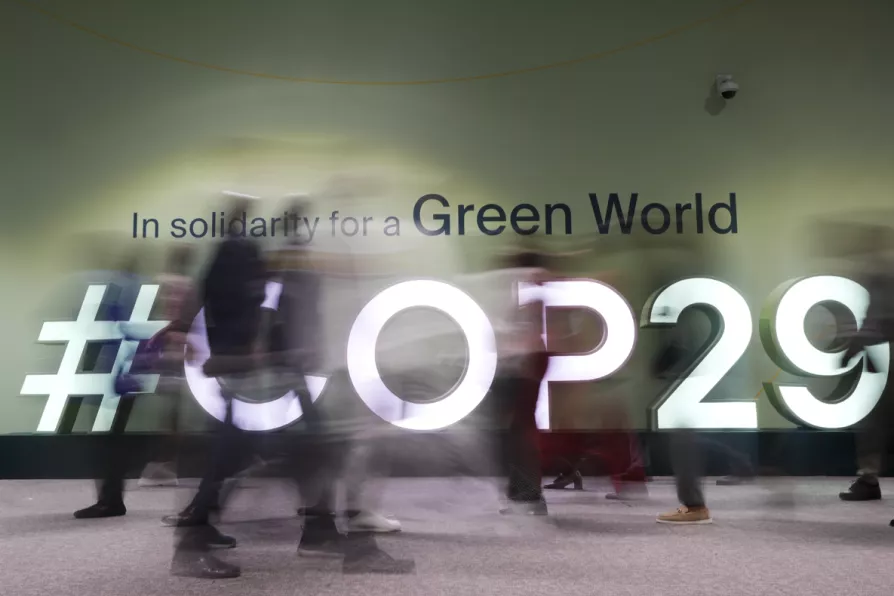
 People walk through the COP29 U.N. Climate Summit, November 13, 2024, in Baku, Azerbaijan
People walk through the COP29 U.N. Climate Summit, November 13, 2024, in Baku, Azerbaijan
MORE than two dozen world leaders delivered remarks at the United Nations’ annual climate conference (Cop29) today, detailing first-hand experiences with catastrophic weather that has come with the climate emergency.
Leader after leader recounted climate disasters hitting their countries.
Grenada’s Prime Minister Dickon Mitchell describing a 15-month drought at the beginning of the year giving way to category 5 Hurricane Beryl.

Hurricanes might have natural causes but the tragedy that follows is entirely human-made and a consequence of capitalist greed, asserts ROGER McKENZIE

When it comes to extreme weather events, from wildfires to flash floods, it’s firefighters who are on the front line of defence, but services have been cut to the bone, and government is not taking seriously its responsibility for the environment, says STEVE WRIGHT












